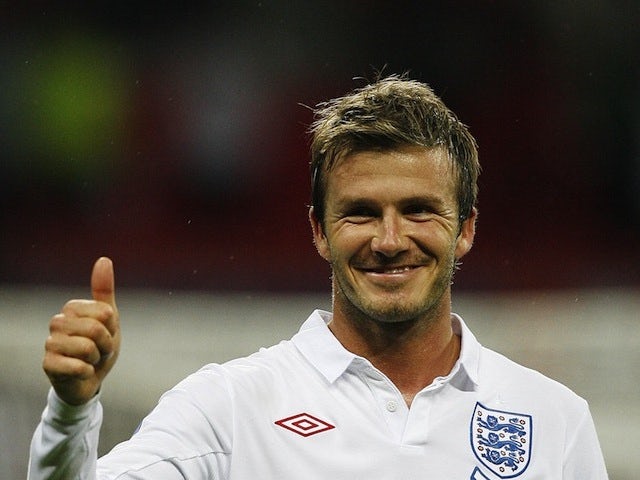David Beckham (115 caps, 17 goals)
 © AFP
© AFP
A superstar both on and off the field, David Beckham experienced both the best and worst of the English support during his 13-year career in the national team.
In all, the midfielder made 115 appearances for England - a record for an outfield player at the time of his 2009 retirement - captaining the team from 2000 to 2006, when he stepped down following England's elimination from the World Cup at the hands of Portugal.
It was by no means all plain sailing for Beckham during that time, and the nadir of his career came in 1998 when he was sent off in England's World Cup quarter-final with Argentina - a match the Three Lions went on to lose on penalties.
Diego Simeone's theatrics to Beckham's petulant kick were worthy of criticism too, but it was Beckham who bore the brunt of England fans' frustrations and he became a national pariah - to the point where an effigy of him was even hanged outside a London pub.
The Manchester United man was already no stranger to headlines - both front page and back - but he proved his mettle by continuing to put in high-quality performances for England despite receiving persistent abuse from supporters for some time after France '98.
Beckham did begin to win the public back over with his performances during qualifying for the 2002 World Cup, though, and he completed his journey from national villian to hero in October 2001 with an unforgettable free kick in the dying stages against Greece to seal England's place at the tournament.
The World Cup itself provided Beckham with another moment of personal retribution as he scored the winning penalty against Argentina to help England reach the quarter-finals, where they were knocked out by Brazil.
At club level Beckham was part of Manchester United's famed 'Class of 92', winning six Premier League titles, two FA Cups and the Champions League before his much-publicised switch to Real Madrid, where he added another league crown.
A loan spell at Paris Saint-Germain later in his career earned him an eighth domestic title in his third different country, while on a personal level he finished second to only Luis Figo in the 1999 Ballon d'Or vote having helped United to complete the treble.









